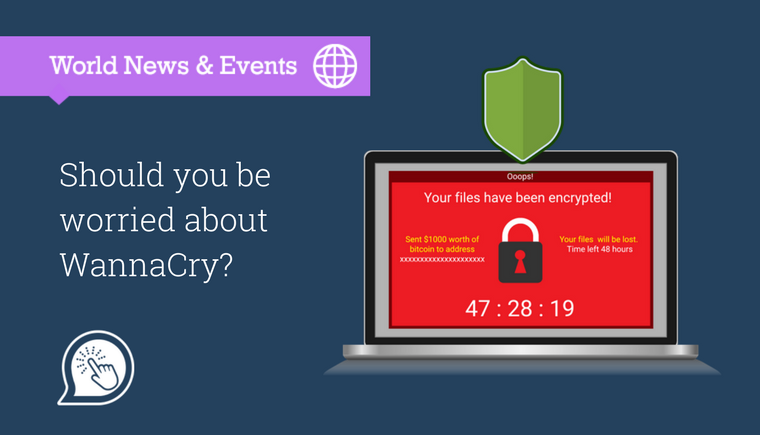
On Friday, computers in over 70 countries were hit by a new ransomware virus called “WannaCry”. The virus crippled NHS hospitals, government systems and even the railway network in Germany, by taking over PCs and encrypting vital files, demanding that a ransom of $300 (around £230) was paid.
The virus’s spread was eventually stopped by a clever, 22-year-old British geek known as MalwareTech who analysed the code and discovered it contained a “kill switch”. However, the virus is still affecting computers today as companies return to work after the weekend.
The question we’re all asking ourselves is, “Should I worry about WannaCry?”
First the good news: your SiteBites’ website is safe
Online security is our first priority. We are constantly alert to online threats. As well as working to block brute force hack attempts, we apply all security updates and patches immediately, to keep your site secure. We’re happy to say that we haven’t been affected by this attack, and none of the websites that we built and host have either. Whew.
Now the bad news: your work and home computers might not be safe
Even though WannaCry has been stopped, MalwareTech has stated that there’s little to stop the hackers tweaking the code and releasing it again. Your only line of defence is to install security patches.
If you’re using Windows, it’s essential that you run Windows Update and install all the security patches now. The WannaCry ransomware spreads across computer networks through a vulnerability in the Windows operating system: the latest patches fix that vulnerability.
If you’re still running an older version of Windows that is no longer supported by Windows Update, like Windows 2003, Windows XP or Windows 8, Microsoft don’t usually release security patches anymore, unless you pay for their expensive custom support. However, Microsoft have taken the unusual step of releasing a security patch to protect older systems from the WannaCry virus. Download it here.
What else can you do to protect yourself?
The UK’s NCSC has released a set of guidelines for home and small businesses. These are:
- Run Windows Update.
- Make sure your antivirus product is up to date and run a scan – if you don’t have one then install one of the free trial versions from a reputable vendor.
- If you have not done so before, this is a good time to think about backing important data up – you can’t be held to ransom if you’ve got the data somewhere else. We recommend that you don’t store backups on the same computer, or any other device within your home network. Home users should consider using cloud services to back up their important files. Many service providers (for example, email providers) offer a small amount of cloud storage space for free.
We’re always scanning for online threats, so we’ll keep you posted on any updates to this story. But for now, stay safe out there
